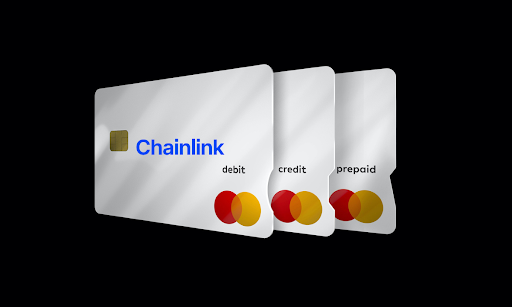- Chainlink and Mastercard are changing how people buy crypto.
- You can now use a Mastercard to get crypto directly onchain, with no middlemen.
- This is a big step toward making crypto easy and accessible for everyone.
In a groundbreaking move that could reshape how people interact with cryptocurrencies, Chainlink has announced a new partnership with Mastercard. This collaboration is set to make it easier for over three billion Mastercard cardholders to buy digital assets directly on decentralized platforms. The news marks a major step forward in merging traditional finance with blockchain technology, bringing everyday users one step closer to seamless crypto adoption.
A Milestone for Onchain Payments
For years, buying cryptocurrency has often required going through centralized exchanges, dealing with slow onboarding processes, and trusting third parties with your assets. This new initiative by Chainlink and Mastercard changes that. The partnership allows users to make on-chain purchases of digital assets using their Mastercard directly, without relying on centralized intermediaries. In simpler terms, users can now buy crypto just like any other online purchase, but with the added benefit of receiving their assets straight to their crypto wallets.
At the center of this development is something called “Swapper,” a decentralized application that connects traditional card payments with decentralized finance (DeFi) services. Swapper works behind the scenes with partners like Shift4 for payment processing, Zerohash for regulatory compliance and custody, and Uniswap and XSwap to handle the actual crypto transactions. Chainlink’s role is to ensure data flows securely and accurately between the systems.
How Chainlink Bridges the Gap
Chainlink is well-known in the blockchain world for its oracle technology. Oracles are services that connect smart contracts to real-world data. In this case, Chainlink provides the infrastructure needed to validate payment authorizations from Mastercard and trigger the crypto purchase on-chain in a secure, decentralized manner. This setup removes the need for a centralized exchange or wallet provider to hold your funds.
By using Chainlink’s Cross-Chain Interoperability Protocol (CCIP), the process becomes smooth and reliable. It enables the entire transaction—from Mastercard payment to crypto delivery—to happen in one integrated workflow, verified by decentralized data feeds. The end user doesn’t need to understand the technical mechanics. They simply use their card, and the crypto shows up in their wallet.
A Big Win for Crypto Accessibility
What makes this announcement even more important is the potential reach. Mastercard has more than 3.5 billion cards in circulation globally. This means a massive number of people can now access crypto without needing to sign up on complex exchange platforms or learn about wallets and seed phrases. For many newcomers, the difficult first step has always been getting their hands on crypto. This partnership removes that barrier.
It’s also a win for the wider crypto industry. By allowing regulated, familiar payment methods to be used within decentralized ecosystems, it boosts trust and encourages mainstream adoption. When trusted brands like Mastercard start embracing decentralized finance, it signals a shift in how seriously the traditional financial world views blockchain technology.
Market Reaction and Future Outlook
The news had an immediate impact on the market. Chainlink’s token, LINK, saw a significant price increase following the announcement, reflecting renewed interest and confidence in the project. Investors are clearly optimistic about the future role Chainlink will play in connecting traditional finance to decentralized systems.
More importantly, this move sets the stage for other financial institutions to follow. As the lines between traditional payments and blockchain-based systems continue to blur, we can expect more collaborations like this in the near future. The infrastructure is being built now, and the effects will be felt across industries, from e-commerce to gaming and beyond.


